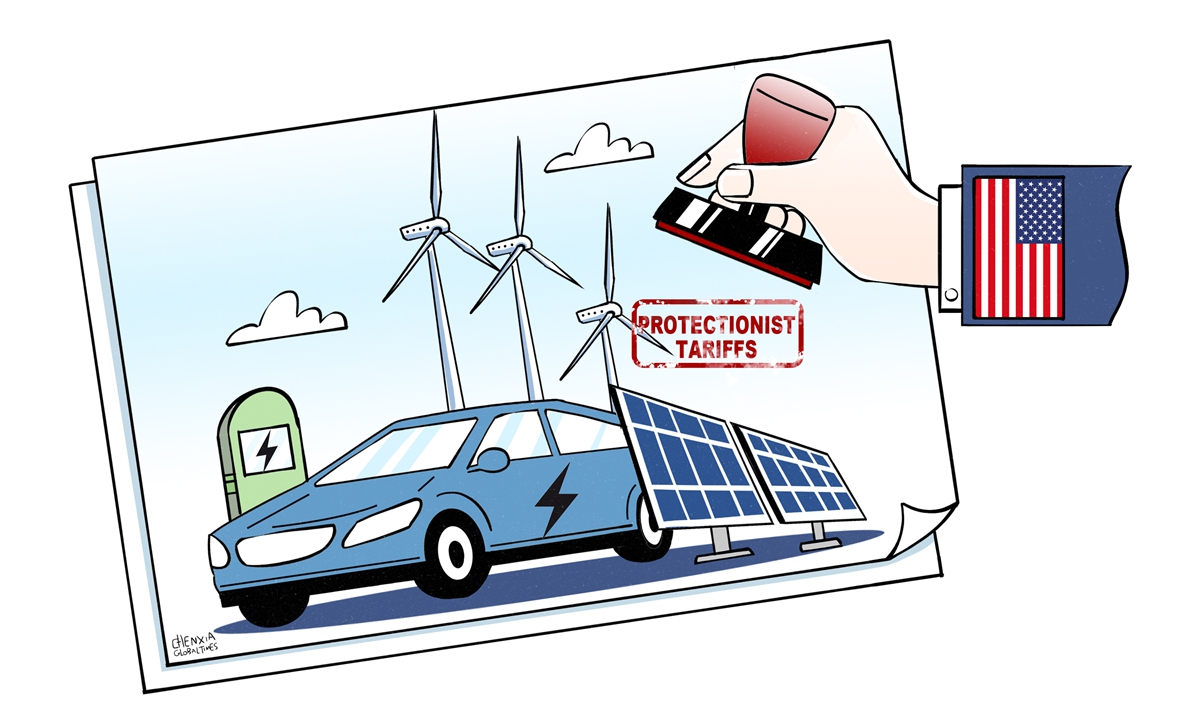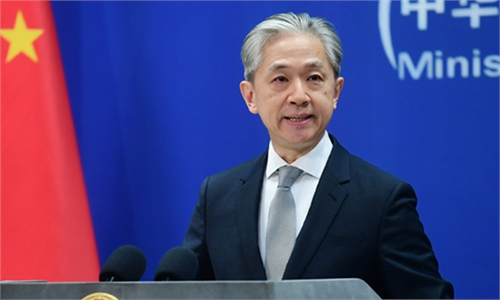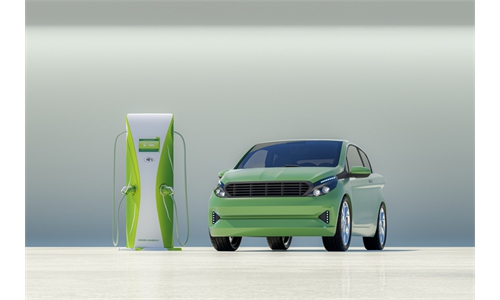
Illustration: Chen Xia/GT
An opinion essay in the New York Times last week claimed the US is losing the green tech race to China. The article says that today "China controls more than 80 percent of many essential aspects of the global clean-energy supply chain," while the US controls "almost none of it."
Is the US losing the green technology competition to China? The coffin hasn't been nailed yet. But the Biden administration seems to have lost patience and graciousness, leading it to impose forbiddingly high 100 percent tariffs this month on Chinese-made electric vehicles (EVs).
More outrageously, the administration is prodding its allies to erect high trade barriers in order to stymie China's green export lead, despite the plain fact that temperature records are incessantly being broken and the negative effects of climate change, such as heat waves, severe storms, drought and wildfires become increasingly uglier for everyone to see.
The green technology competition means different things to different people, but the primary argument in the US is that the country is missing out on the economic opportunities available in transitioning toward the low-carbon economy and green livelihoods.
By various calculation metrics adopted by international organizations, Chinese companies are currently creating more green economic activity and good-paying green jobs than American firms.
But the competitive edge earned by Chinese companies in recent years is no reason for Biden administration officials to feel jealous and place exorbitant 100 percent import duties on Chinese EVs. It is even more ridiculous and scandalous for the Biden administration to label Chinese green technology as "overcapacity." China's green technology advantages lie in the country's lower labor cost and rising innovation capability.
The green "overcapacity" issue is a smoking gun made up by the Biden administration. The world's energy transition is just unstoppable, with green technology renewables expected to reach half of the global electricity production mix by 2030.
American politicians are worried that Chinese companies are to play a dominant role in providing green technology products to the world - North and South - diminishing American firms' ability to export them. What those politicians should do is to learn from China's experience. The US government's move to impose high tariffs and resort to trade protectionism to impede and hamper Chinese companies will only shut America's doors, leading to a decaying industry there.
Meanwhile, Chinese companies will continue to invest heavily in research and innovation, competing domestically as well as internationally for a larger market share, and constantly adding to their green technology portfolios - be it high-end solar cells, innovative wind turbines and hydropower generators, or highly efficient batteries, long-range electric cars or state-of-the-art high-speed train systems.
With Chinese companies' constant advances in delivering these green technology products to the world, the greenhouse gas emissions in the atmosphere will come down, and our living planet's climate change will be mitigated and well controlled. And, it is absolutely untenable for American officials to concoct claims of Chinese green "overcapacity," which won't become an issue at least before the middle of this century.
The US' protectionist claims against China are reaching a "fever pitch" now. Despite the Inflation Reduction Act that US President Joe Biden signed into law, making available $370 billion for clean energy support, American politicians are accusing China of providing consistent support to green technology innovation in the past decade that led to China's new-energy advantages.
The US government has increasingly departed from its past policy of cooperation with China, shifting to criticizing China's economic, labor and industrial policies, or intentionally erecting "small courtyards with high walls" to decouple from Chinese technology and manufacturing. All these US efforts are poised to fail, as Chinese entrepreneurs will continue to improve their technology self-reliance and turn out high-end manufactured products. China's pace of industrialization and modernization is unlikely to be stopped.
Why do US politicians refuse to look for the true answer to American companies' woeful levels of research and development on renewables, and their inability to agree on national standards for deployment of renewables in recent years? Doesn't that inability have something to do with conflicts of interest among the senators and representatives in Congress, and between the White House and Congress? Much of the "make America great again" rhetoric is actually based on the idea of reestablishing traditional fossil fuel jobs or investing in economic models of the past.
American politicians should calm down. China's ascendancy in green technology is not a national security threat for anyone. Only people with a zero-sum mindset would suggest that achieving progress in green technology by Chinese companies will produce a deleterious effect on America's economic security, or leave the US vulnerable to ceding its position as a major world power.
The US could choose to cooperate with China. If the US government stubbornly refuses Chinese green technology and green products, the environmental costs to its economy and the health of its people in the coming years could surge.
In contrast, China's political and economic systems are creating more favorable conditions for sustained technology undertakings. Chinese policies, such as the pricing benchmark for electricity generated from renewables added to the state grid, have been consistently encouraging to green technology investment and development.
China's 2007 "Medium and Long-Term Development Plan for Renewable Energy in China" illustrated an explicit goal to develop a competitive domestic green industry. Since then, the country's green technology has grown exponentially.
According to incomplete statistics, China now leads the world in manufacturing solar cells and wind turbines, producing more than 40 percent of them in the world.
China has announced a new target for its rapidly growing new-energy vehicle (NEV) industry, with a document from the State Council, the cabinet, stating that yearly NEV sales will account for 45 percent of all vehicles to be sold in China by 2027. Older and increasingly outdated internal combustion engine buses, cars and trucks will be phased out of the market. The vision in Chinese policymaking is evident for everyone to see.
The author is an editor with the Global Times. bizopinion@globaltimes.com.cn



